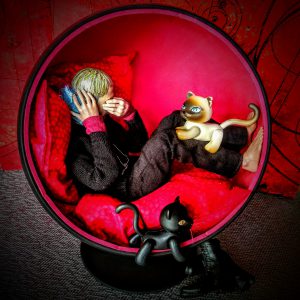In a post we wrote before, we talked about how some of the signs of depression or anxiety can be physical. In this post, I’d like to try to think about this a little deeper. What I mean is how does physical pain make emotional pain worse and vice versa.
Here are some examples:
-
Your child lacks an appetite so they don’t eat much one day. Not getting good nutrition and being mildly dehydrated makes them have low energy and have trouble concentrating. They also become more irritable and snap at you when you call them that day. They start to feel really hungry all of a sudden and decide to stop and get fast food. They eat a big meal with a lot of fat and afterwards they start to feel nauseous because their stomach acid is refluxing and their body is working extra hard to break down the big meal they just had. When they get home, they don’t want to talk and go straight to their room to sleep until the next day. You are frustrated with their behavior and worried about why they are having so many stomach issues…
Some patients are upset when they feel like someone is telling them their pain is “all in their head.” I like to tell them it is not in your head – but it is all connected. When we feel bad, we don’t take care of our physical needs – and when we don’t care of those, it makes us feel bad. Sometimes this cycle can get so bad, we can’t break it without a lot of support.
Here’s another example:

-
Your child is feeling very stressed about an upcoming final exam and they are holding their shoulders stiff all day. At the end of the day, they complain that their neck is starting to throb. You know that’s their sign that a migraine is about to come on. You tell them to come home from their friend’s so they can take their medication right away – but by the time they get home, the migraine has already gotten bad – they take the medication and go straight to bed. Well it was unavoidable wasn’t it? Now thinking back, you realize there are more factors that contributed to your child’s migraine. Migraines do not like someone who does very good self-care including staying hydrated, eating regular meals, exercising, getting enough sleep. Not only did their stress contribute to their migraine – the stress and worry also distracted them from the good self-care they are usually better about.
This highlights the idea that mental health is dependent on so many things, including how we take care of our physical health.
Do these examples sound like something your child has experienced? If not, do you have other examples?
